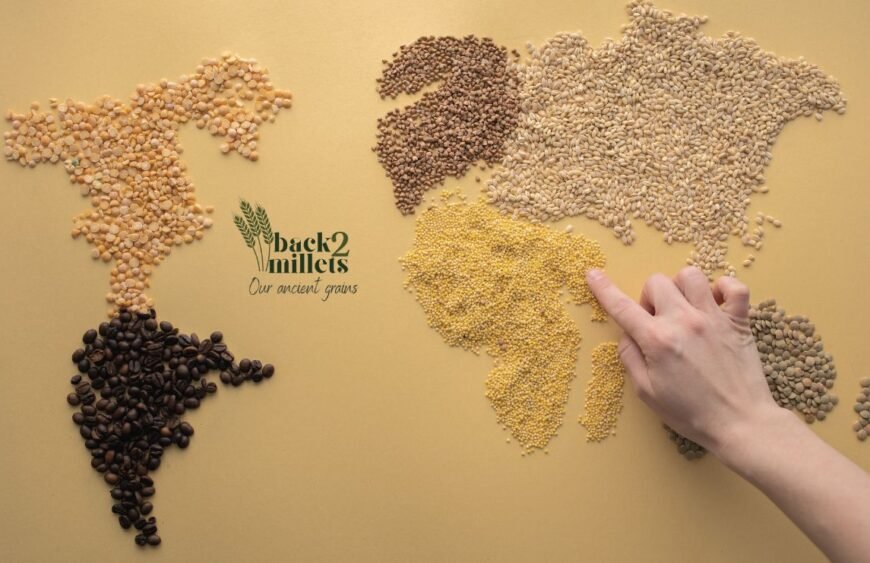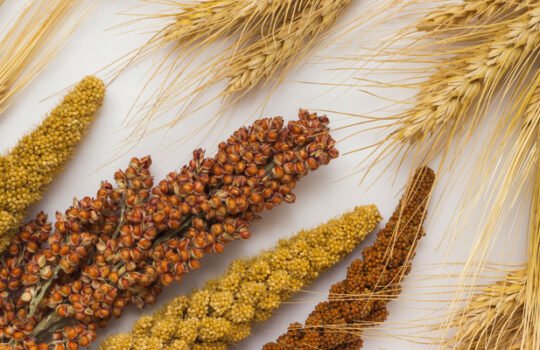Millets are a group of small-grained, annual, warm-weather cereals belonging to the grass family. They are highly tolerant of drought and other extreme weather conditions and have a similar nutrient content to other major cereals.
There are many different types of millet, including:
- Pearl millet: This is the most common type of millet and is used for a variety of purposes, including making flour, porridge, and beer.
- Finger millet: This type of millet is known for its long, finger-like grains. It is often used to make flatbreads and other baked goods.
- Foxtail millet: This type of millet is known for its high protein content. It is often used to make livestock feed and human food.
- Barnyard millet: This type of millet is known for its high fiber content. It is often used to make breakfast cereals and other healthy snacks. Millets are a good source of protein, fiber, vitamins, and minerals. They are also gluten-free, making them a good choice for people with celiac disease or who are following a gluten-free diet.
Here are some of the health benefits of millet:
- Lowers blood sugar levels: Millet can help to lower blood sugar levels by slowing down the absorption of sugar into the bloodstream.
- Lowers cholesterol levels: Millet can help to lower cholesterol levels by increasing the production of HDL (good) cholesterol and decreasing the production of LDL (bad) cholesterol.
- Protects against heart disease: Millet can help to protect against heart disease by lowering blood pressure and cholesterol levels.
- Improves digestion: Millet is a good source of fiber, which can help to improve digestion and prevent constipation.
- Boosts energy levels: Millet is a good source of protein and complex carbohydrates, which can help to boost energy levels.
- Improves skin health: Millet is a good source of vitamins and minerals that are essential for healthy skin, such as vitamin B6, zinc, and magnesium.
Tags:





